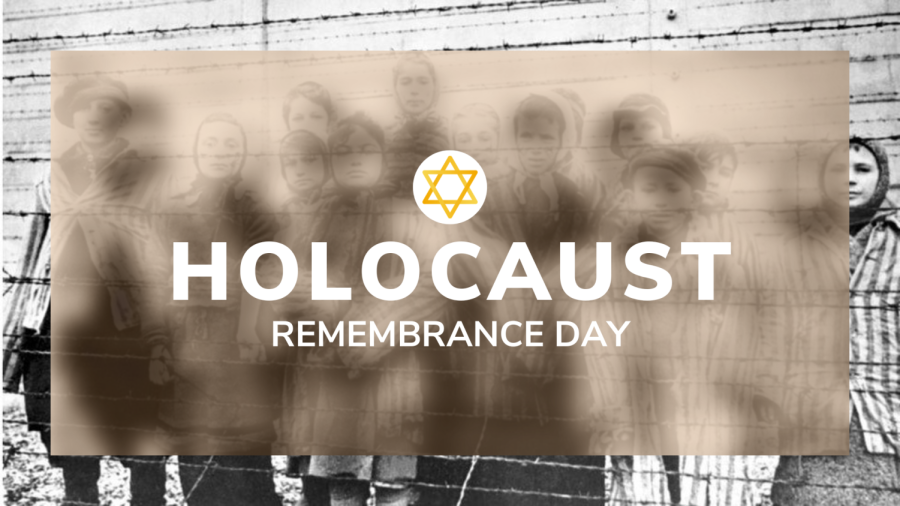International Holocaust Remembrance Day: significance and impact
International Holocaust Remembrance Day was introduced by the United Nations General Assembly on 1 November 2005.
On January 27, communities around the world are scheduled to observe Holocaust Remembrance Day, recalling the systematic murder of over six million individuals by Nazi Germany and commemorating the lives lost in the name of hatred.
“It is scary to think that, if I were there, I could have been killed for something out of my control. Something like my race,” said Jewish student Uri Khasin (‘24).
Being regarded as one of the worst tragedies in human history, the Holocaust targeted individuals on the basis of religion, ancestry, and pure discrimination. January 27 was chosen as the date of remembrance as it is on this day that the Auschwitz concentration camp was liberated by the Red Army in 1945.
“The Holocaust purposefully killed millions. It is frightening to look back,” said Agash Morekonda (‘24).
The symbolism of the day, being for all of humanity, serves as a reminder of the darkest parts of human history and a call to action to combat hate and discrimination. It serves as a reminder that we must always be vigilant in protecting human rights, and that we must work together to build a more just and compassionate world for all.
“We study history so we do not repeat mistakes from the past. An organized genocide of any group of people is the most horrible thing that could possibly happen and these things need to be remembered and discussed,” said US History Teacher Thomas Dalldorf.
At the end of the day, Holocaust Remembrance Day is a time when people can come together to remember the victims, to remember the lessons of the past, and to use them to build a better tomorrow.
“We can not forget the Holocaust, because we do not want something like that to ever be repeated,” said Dalldorf.
Your donation will support the student journalists in the AVJournalism program. Your contribution will allow us to purchase equipment and cover our annual website hosting costs.

